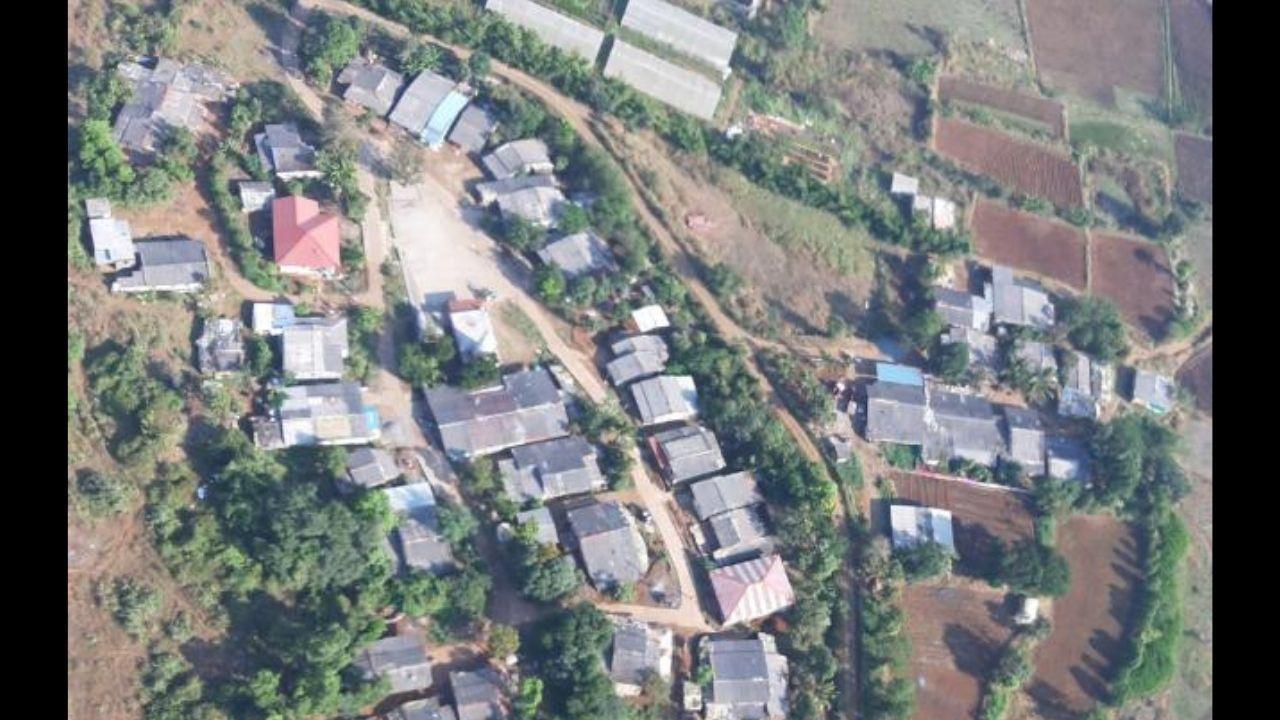The sarpanch of the Govitri gram panchayat and local administration have managed to keep the number of coronavirus cases surprisingly low through both the waves of the pandemic.

Valvanti village, Mawal taluka, Pune
With 14, 123 fresh Covid-19 cases on June 1, Maharashtra saw the lowest-single day rise since March 10. Though the state reported 15,169 cases on June 2, the rural areas have played an important role in keeping the infection in check as the rural bodies took the challenge head-on.
ADVERTISEMENT
In fact, to encourage public participation in villages, the Maharashtra government announced a ‘Covid-free village’ contest. Rural Development Minister Hasan Mushrif, on Wednesday, announced the contest with fat cash prizes to be implemented across the state soon.
"If the villages become free from the coronavirus, then the talukas, districts, regions, and the entire state will be rid of the scourge as soon as possible, with the participation of the common people," he said.
To understand how the rural bodies in Maharashtra are tackling the pandemic, mid-day online reached out to sarpanch and police patil of Govitri gram panchayat who have managed to keep the number of coronavirus cases surprisingly low through both the waves of the pandemic.
Govitri government hospital
Police patil Navnath Jambhulkar and sarpanch Sangeeta Mohol have been working relentlessly with their team-members to keep the big C at bay from Kolwadi, Valvanti and Vadauli villages of Govitri gram panchayat in Pune’s Mawal Taluka.
Also Read: Maharashtra's youngest sarpanch keeps his village Covid-19 free
With a combined population of approximately 800, these 3 villages had seen only 7 cases when the second wave of the pandemic hit, Mohol told. However, in April, the cases rose to 11. According to Jambhulkar, Mumbaikars and Punekars have farm-houses around the villages where they pay recreational visits from time-to-time.
“We were managing the pandemic very efficiently right from 2020. However, during the second wave when cities like Mumbai and Pune saw a massive rise in cases, our villages got exposed as city-dwellers started coming and living here as an escape,” Jambhulkar revealed.
At this stage, he decided to involve all stakeholders and create awareness about fighting coronavirus. A 5-member committee, including ASHA workers and aarogya workers, was formed which started testing and isolating all in-comers.
“Our aarogya workers would test everyone coming to the villages and isolate them in their respective homes. The ones who tested positive would either be quarantined in their homes or admitted to the government hospital in Kamshet,” said Mohol.
“In April, the number of cases rose and this triggered panic. Many villagers would not allow Covid-19 positive patients to be quarantined in their neighbourhood. Selecting bigger and secluded homes to quarantine patients was indeed a task,” Jambhulkar added.
While some patients recovered at home with the help of medicines procured from the local gopekendra, some had to be admitted to Kamshet government hospital.
Not only have the committee members facilitated testing and treatment in the villages, they have also campaigned to spread awareness about the importance of social distancing and self-quarantine.
As a result, the 3 villages have not reported a single fresh case in the last 15 days and have only 2 active cases as of now, who are set to be out of quarantine in a few days.
However, both sarpanch and patil are concerned about the vaccine hesitancy among the villagers. Misinformation has found its way to the villages and a big chunk of the population is not ready to get inoculated.
While the committee is trying their best to educate the villagers, Jambhulkar says “It’s time the government gets directly involved and starts campaigning, because without vaccination there is a chance of the infection spreading again.”
Also, sarpach Mohol seemed concerned about the lack of smartphones and internet connection in the villages due to which many students are missing their online classes and are worried about exams and promotion.
When asked about the most important thing that can keep the infection in check, Mohol said, “People have to stop venturing out as far as practicable until they get fully vaccinated.”
 Subscribe today by clicking the link and stay updated with the latest news!" Click here!
Subscribe today by clicking the link and stay updated with the latest news!" Click here!






